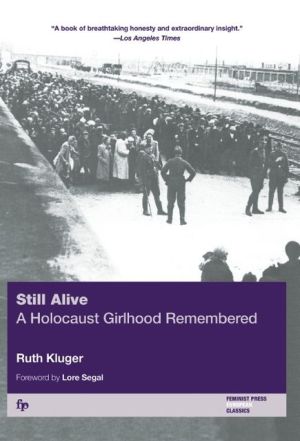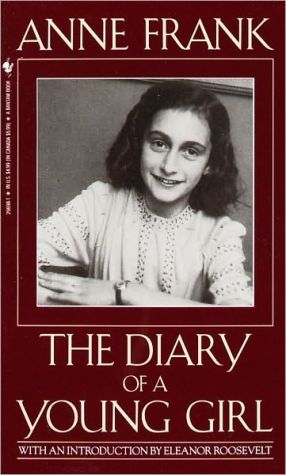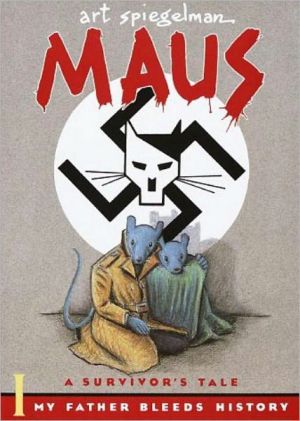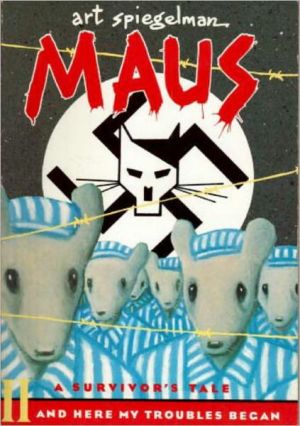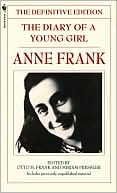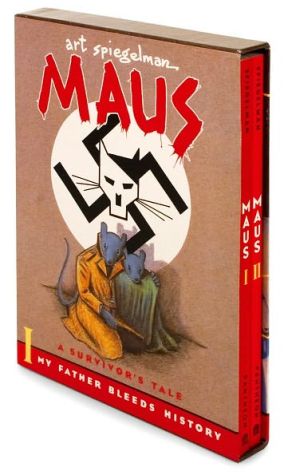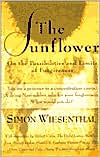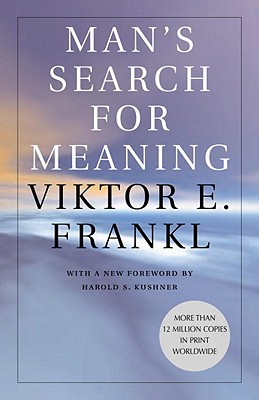Still Alive: A Holocaust Girlhood Remembered
Now in paperback, this European bestseller won huge -acclaim from U.S. critics, Jonathan Yardley of the Washington Post Book World declared this memoir of a Holocaust girlhood and a life reclaimed "one of the best books of 2001 . . . a book of surpassing, and at times brutal, honesty. . . . Among the many reasons that Still Alive is such an important book is its insistence that the full texture of women’s existence in the Holocaust be acknowledged."\ Ruth Kluger’s story of her years in...
Search in google:
A gripping and powerful life story of coming of age under the Nazis on par with Primo Levi and Elie Wiesel. Washington Post Book World - Jonathan Yardley The literature of the Holocaust is vast and ever-growing, some of it of an uncommonly high order, but Ruth Kluger's Still Alive moves at once to the forefront.
\ \ Chapter One\ \ \ \ \ Their secret was death, not sex. That's what the grown-ups were talking about, sitting up late around the table. I had pretended that I couldn't fall asleep in my bed and begged them to let me sleep on the sofa in the living room, which we called the salon. Of course, I didn't intend to fall asleep. I wanted to get in on the forbidden news, the horror stories, fascinating though incomplete, as they always were-or perhaps even more fascinating for their opaqueness, that whiff of fantasy they had about them, though one knew they were true. Some were about strangers, others were about relatives, always they were about Jews.\ At the table there was talk about Hans, a younger cousin of my mother's, whom they had held temporarily in Buchenwald. The name means beech grove—a pretty name, the kind I liked because I read poetry about nature. The voices at the table, women's voices, indistinct and barely audible because I kept my head under the blanket, were saying KZ. Just the two letters, short for Konzentrationslager. In German they make an ugly sound; they spit and cough like "kah-tset. Hans was scared. They had bullied him into not talking, and he hadn't talked—or perhaps he had, maybe just to his mother? They had tortured him. What is torture, how does one stand it, how is it done? But he was alive and back, knock on wood, let's be thankful. Next question: How do we get him out of Austria?\ Hans did get out, and I was to meet him again in England, when I was no longer eight years old, but the way I am now: impatient and absentminded, prone to drop things intentionally or through clumsiness, even breakables like dishes and love affairs; a woman who is perennially on the move, changing jobs and homes at the drop of a hat and inventing the reasons afterwards, while she is packing; a person who runs away as soon as she gets nervous, long before she smells danger. Because running away was the best thing I ever did, ever do. You feel alive when you run away. It's the ultimate drug, in my experience.\ So there I was with Hans in England, in his home, which he loved because he owned it. He was married to an Englishwoman, a gentile, and his children were visiting. I had come from America, together with Heinz, another cousin on my mother's side, who had survived the war in Hungary with false papers that declared him an Aryan and a Catholic. Heinz was lucky in that his overanxious mother had refused to have him circumcised, a fact that caused considerable embarrassment when he was a little boy, playing on the beach in the nude, as was customary in Europe. ("Put some pants on him," my grandfather, though no prude, would say to his older daughter, my aunt, writhing in his beach chair with discomfort at the sight of that shameful piece of skin, a babyish indiscretion disgracing the family.) Nowadays Heinz assures me that that bit of skin came in handy in the Hungarian school lavatories and locker rooms. When Heinz's grandmother died in Budapest during the war, the family had to drag the Catholic priest away from the door of her room, for she would have vehemently rejected his promise of eternal life, and thereby would have endangered the earthly life of the others.\ Meanwhile our English cousin Hans—who had ended up liberating his homeland, Austria, as a soldier in the British army and surprising the natives with his ability to curse in perfect Viennese—was telling us indignantly how his rabbi hadn't wanted him to marry a gentile, and how he had left the rabbi and clung to his woman. I hadn't even thought of consulting a rabbi when I got married in Berkeley. Hans's father, killed in Auschwitz, had been the only observant Jew in the family. It was incongruous, and therefore amusing, that his son, who had been the earliest embodiment of my childhood's darkest and ever-expanding secret, should concern himself, let alone get angry decades after the fact, with some English rabbi's objection to the woman of his choice. That was the best part. The rest was tea and cakes, and I was shifting in my seat, eager to get up, do something, go for a walk, anything to escape the all-embracing envelope of boredom, the unrelenting regurgitation of details from everyday life. Heinz told me later, not without a touch of malice, that Hans had asked him if I suffered from hemorrhoids, since I wouldn't sit still for long.\ But Hans wasn't your average English home owner: he had been tortured in Buchenwald when he was a teenager. And I was the little relative who kept her ears open under her blanket, determined to find out more about this extraordinary experience. Not so much from sympathy as from curiosity, because Hans was the center of an exciting mystery which concerned me, too, in some nebulous way. Though no one would tell me about it because I was too young. And now?\ Now I was better informed and could ask all I liked, for those who had imposed the restriction were gone, dispersed, had died in gas chambers or in their beds, wherever. And still I can't get rid of the prickly sense that I am breaking taboos, searching for indecencies, like Noah's children uncovering their father's nakedness, that I am not supposed to know about death and dying. As if there were anything else worth knowing. The grown-ups pretended that only grown-ups die. But on the street, for all to hear, the Nazi boys were singing the song about Jewish blood spurting from their knives. That included my blood, didn't it? And they were carrying sharp little daggers, weren't they? You didn't have to be very smart to get their meaning; on the contrary, it required some mental agility to ignore it, to shrug it off. (A German colleague of mine—I have become a professor of German literature since—reads what I have just written and says, "You know, those knives weren't daggers. They were good for cutting bread, that's all. On excursions. They weren't even pointed." He takes a pencil and painstakingly draws the kind of knife he used to own as a member of the Hitler Youth. "I would have preferred a real weapon," he reminisces, then adds, "our knives carried the legend `Blood and Honor.'" That's a dagger for sure, I think. Blood and honor means a dagger, whether the knife is pointed or round.)\ So now I have a chance to ask Hans about the old secrets, and I do. In graduate seminars you learn how to ask precise questions, and I have taught that skill to students. But the other guests in the stifling space of the tidy English living room want to be left in peace: the children assure us that they were about to leave anyway and had better go now; Heinz takes off his glasses, wipes them, and asks plaintively whether we have to go through with this. Hans's gentile wife leaves the room. She has heard it all before and more than she wanted. True, no doubt, but did she ever pay attention?\ And Hans answers my questions and tells me his story. I want to know exactly what it was like, and with a certain groaning roundaboutness he tells me the minutiae, the contortion of the limbs. He can explain it well. He can even show me; he suffers from back pains dating from that time. And yet these details have a way of leveling the horror, as appeals from Amnesty International never quite get across what they are telling you because the familiar words, black ink on dry white paper, interfere with the mute and essentially wordless suffering—the ooze of pain, if I may so call it—they aim to communicate. Only in Hans's tone of voice is there a hint of the sheer evil, of radical otherness. For the sensation of torture doesn't leave its victim alone—never, not to the end of life. It isn't the pain per se, it's how it was inflicted. Consider how new mothers, by contrast, forget the great pangs of childbirth within days, and so can look forward to their next child. What matters is not just what we endure, but also what kind of misery it is, where it comes from. The worst is the kind that's imposed by others with malicious intent. That's the kind from which no one recovers.\ My head is a warehouse of such tales and reflections. And I crave more. I read them and listen to them. Though with the passing years many fervent convictions, and certainly all manner of faith, has drained out of me, I still seem to believe in the principle Knowledge is power, which someone wrote in my little-girl poetry album (it had an enchanting, tiny wooden horse for a bookmark). Occasionally I tell a few stories of my own, if someone asks. But that rarely happens. Wars, and hence the memories of wars, are owned by the male of the species. And fascism is a decidedly male property, whether you were for or against it. Besides, women have no past, or aren't supposed to have one. A man can have an interesting past, a woman only an indecent one. And my stories aren't even sexy.\ This English cousin recently died, and I wondered why I hadn't visited him more often. One reason was my indifference to family relations, which it took me years to acknowledge. Wherever there are Jews, the world over, it has become customary to count the murder victims among our relatives, to insist that our children know these figures, and to compare them with the remnant of the mishpokhe, the extended family. They are horrendous figures, huge collective graves. "One hundred and five," says an uncle. The next one adds another dozen, while an aunt ticks off a few more names on her fingers. For a long time I participated in this counting and accounting, and tried to persuade myself that I was in mourning for people whom I hardly remembered. But actually I never experienced the comfort of a mishpokhe. Mine fell apart at the time I became conscious, not later. I'd like to belong, but wishing won't do it. Basically, I never did belong; the dispersion started too early. Yet who likes to be a monad, alone in space? Better to be a link in a broken-yes, even a broken-chain. Still, now that the Holocaust archives are doing the counting for us, I won't register with them as a survivor. The form lies where my son has put it for me, gathering dust in a corner of my desk. I can't overcome my resentful reluctance to fill it out, as if it were one more roll call in the shivering hours of the morning, or the merciless heat of noon, on the Appellplatz of some last concentration camp.\ To complicate matters, the other survivors of my Viennese childhood irritate me like a powerful itch, and I prefer to avoid them. I guess the child in me suspects that the older ones deserted me and that the younger ones still would, if they had the opportunity. Perhaps these barriers are my fault, perhaps theirs. Who knows? We all splash in dark waters when it comes to the past, to this past.\ But the real reason I always shied away from visiting relatives was my bad conscience. Hans's mother, my great-aunt, was one of those who died in the most pitiful way there ever was: the infamous death in the gas chambers. She was a relative I knew well, since Hans's parents shared an apartment with my mother and me after my father had been arrested and we could no longer stay in our home. In my memory she remains the person who wouldn't let me drink water after eating cherries, a superstition that undermined the authority of my absent father, the doctor in the family to whom nobody listened. She was the person who confiscated my collection of used streetcar tickets, one of the few amusements I invented for myself outside of reading, when so much else closed down. She claimed it was unhygienic. (But it was mine, damn it. What right did she have to take it? I can still feel my eight-year-old indignation.) And she insisted that I eat all the food put before me in the dark hours of the morning at the kitchen table, before going to school—a revolting, sticky mess washed down with a sweetish cocoa drink covered by that skinlike layer of milk which nauseates all children in the world, if they are not starving. She scolded me when I recited poems out loud, another private amusement, this one turning into a bit of an addiction to be sure: while walking the unsafe streets, I would mutter verses as if they were a magic spell. It was as much a neurotic symptom (I now say in retrospect) as an early sign of a literary turn of mind. But worst of all, she was the person who stood between me and my mother, keeping her at a distance from me so that after a day spent trying to get my father out of jail or looking for a job, she wouldn't be aggravated by her little daughter's demands for reassurance and affection in a world that was becoming ever more constricting and unfathomable.\ So what could I say to her son, who loved her as a child loves his mother, when he questioned me, who hated her with a child's needle-sharp aversion, and who can't forgive her, even after a death that is as hard to imagine as it is impossible to forget? For it is not in our power to forgive: memory does that for us, and when memory refuses, the honeyed words that are meant to convey what we sincerely think we ought to feel turn sour with hypocrisy. I know of her death in my mind. But my childish resentments are more deeply ingrained, where the mind doesn't reach.\ And anyway, what was so bad about reciting classical ballads on the street, the perfectly respectable kind of poems that older children were made to memorize in school? Why was nobody proud that I had learned them all by myself? "It makes a bad impression. You shouldn't call attention to yourself in public." "Jewish children who have bad manners cause rishes [anti-Semitism]." But was that relevant, when the entire population had been incited to despise and persecute us? The older people repeated the litanies learned in their childhood and didn't, or simply couldn't, think far enough to revise them to fit present circumstances. But I had been born in 1931 and thought it ludicrous that the great storm raging around us could be increased or diminished by my good or bad manners. Or that anyone should think so. My aunt wasn't that stupid. So she just didn't like me, I figured. And since I had not lived through many pre-Nazi years, I understood instinctively, without having to read Sartre on the subject, that while the consequences of anti-Semitism were a considerable problem for us Jews, the thing itself, the hatred, was a problem of and for the anti-Semites, and for them alone. Deal with it as you can was my attitude: I'm not going to become a paragon of virtue or put on nice-girl manners in order to shame and convert you. As if you wanted to be converted. And I went on memorizing and reciting eighteenth-century verse about knights and dragons and ancient bards and heroes.\ The grown-ups had lost their bearings, and not only with regard to their children's behavior: they were confused about how to conduct their own lives and by what standards. Mind you, these were not rich people. They were middle-class folk who, however solid, had to watch the bottom line. Yet now they fantasized that it could have made a difference if they and other Jews had acted differently—and this in a city which owed half its innovative thought and culture to Jews! What more could the Jews have done for what they thought was their country, too? Jewish women, for example, shouldn't have worn jewelry in public, in the restaurants and cafés that were Vienna's favorite gathering spots. (And why, I wondered, does one buy jewelry, if one isn't supposed to wear it? I didn't myself see much point to glittering stones, but if it's so despicable to own them, I thought, why don't they close the jewelers' shops?) My people knew of the pogroms of the past (they wouldn't have been Jews if they didn't), but these were dark, historical, preferably Polish and Russian matters—nothing to do with us. They also knew what had been going on in neighboring Germany for the past five years. Or didn't they read the newspapers? Maybe only the men did. At this point my understanding of my family falters, even at this late date. What were they thinking of? I ask with self-righteous hindsight. Their sudden and unwarranted self-criticism was a kind of psychological damage control, a way to find comprehensible proportions, recognizable parameters, for this new persecution. They turned introspective instead of getting out, legally or illegally, and regardless of destination. Just out. True, they didn't have as much time as the German Jews to leave their country, but more than the Polish Jews. I know I would have left, I say now, with the feel of disaster still and forever in my bones.\ I complained to my mother about this aunt of hers, Irene. "She's a mother of boys," my mother said, "she isn't used to girls." What was there to get used to, I thought irritably. And thus, frozen in death, this woman embodies the most appalling generation gap, for I cannot bring myself to think of her and her husband, my great-uncle, with commiseration. I remember his resentment at having to give me lunch when I came back from school and the women weren't home. It wasn't a man's job, and he took out his humiliation on me. I realize that their murder shouldn't be framed by the petty complaints of my childhood anger. But that is where my uncle and aunt are lodged in my mind and won't budge. I remember that she would punish me when she found out that I had poured my breakfast cocoa into the sink. She would make me stay in the kitchen until I had eaten or drunk a second helping, more than my unwilling stomach could absorb, but only after it had done so was its owner permitted to leave the house for school. Which was unpleasant, because it meant I was going to be late. I reasoned that the grown-ups should get together and make up their collective minds and not impose punishments which other grown-ups considered cause for punishment, like making you late for school as a punishment for not eating your breakfast.\ \ \ \ \ Yet ultimately it didn't matter whether I was on time or late for school. It was one of those things that had become irrelevant in view of a more important question: which and how many of my classmates had been arrested overnight. (The German word was ausgehoben, lifted out, and the men who did the job were usually Jews who hoped to gain privileges by collaborating, and who justified their work as an improvement over leaving it to the Nazis. They were Ausheber, lifters out, a curious euphemism.) Or maybe the missing classmates had gone underground or had managed to leave the country by some mysterious, or perhaps even legal, means. I entered the classroom and looked round. The missing children might be sick, but it was more probable that I wouldn't see them again. Every day there were fewer of us. When there were too few, the school was closed, and we were transferred to another school with the same problems. And then yet another one. The classrooms became older and more run-down. There was one with gaslight instead of electricity. On the dark winter mornings the teacher had to get up on a chair to light the lamp. There was something antique and venerable to this process, so I didn't mind it much that we had to do our work in semidarkness. The remaining children wore shabby hand-me-downs, and their language was the dialect of the outlying districts: one could see and hear that they were the children of the poor. For one could not emigrate without money. In all the countries of the world,\ \ \ Excerpted from Still Alive by Ruth Kluger. Copyright © 2001 by Ruth Kluger. Excerpted by permission. All rights reserved. No part of this excerpt may be reproduced or reprinted without permission in writing from the publisher. \ \ \ \
Foreword: Going on Living9Part 1Vienna13Part 2The Camps61Ghetto70Death Camp89Forced Labor Camp113Part 3Germany133Escape135A Defeated Country150Part 4New York171Epilogue203
\ Jonathan YardleyThe literature of the Holocaust is vast and ever-growing, some of it of an uncommonly high order, but Ruth Kluger's Still Alive moves at once to the forefront. \ — Washington Post Book World\ \ \ \ \ Publishers WeeklyIn the 1950s, when Kluger's children were small and growing up in the U.S., she caught German measles from them. Her family doctor said, "You must have led a sheltered childhood." In reality, she spent her early years in Theresienstadt and Birkenau-Auschwitz. Kluger's memoir which has already become a bestseller in Germany is a startling, clear-eyed and unflinching examination of growing up as a Jewish girl during the Holocaust. Calmly, and chillingly, relating the everyday events of her youth Aryan students making colored paper swastikas and then asking Jewish students to judge them, breaking the law to go to an Aryan movie house to see Disney's Snow White and the Seven Dwarfs and being challenged by a neighbor Kluger charts how she and her family moved from a middle-class Viennese life to dealing with the constant threat of death in the camps. Kluger's style is wry ("the muse of history has a way of cracking bad jokes at the expense of the Jews"), and she can shock readers with simple, honest admissions, such as her embarrassment, in the 1970s, when her mother asks unanswerable questions of a speaker about the death camps. Kluger, who is now professor emerita at UC-Irvine and has won awards for this memoir as well as her literary criticism, has written a deeply moving and significant work that raises vital questions about cultural representations of the Holocaust (why did the highly praised, socially conscious 1947 film Gentleman's Agreement never mention "the Jewish catastrophe"?) and searches for what it means to be a survivor. Already compared by European critics to the work of Primo Levi and Elie Wiesel, this is an important addition to Jewish, Holocaust and women's studies. (Nov.)Forecast: This is a standout in the crowded field of Holocaust memoirs and should have strong sales. Copyright 2001 Cahners Business Information.\ \ \ Library Journal"How can I keep my readers from feeling good about the obvious drift of my story away from the gas chambers and the killing fields and towards the postwar period, where prosperity beckons?" This question rests at the heart of Kluger's story of survival: how to tell of her own escape from a concentration camp without rousing a sense of well-being and relief in readers who get wrapped up in her own "happy ending"? Kluger solves this dilemma by deftly combining her own compelling narrative with a rigorous commentary that is sure to provoke, challenge, and unsettle most readers. She tells the dramatic story of living in concentration camps but decries the preservation of these camps as museums: "[the museums] don't take you in, they spit you out." And while she married one of the American paratroopers who participated in the liberation, she resents the "careless and unprepared" American soldiers who could not face the exhausted, starved victims. Kluger describes herself as "inclined to question and contradict," and her memoir, translated from German by the author herself, adds a spirited and original voice to the field of Holocaust literature. Amy Strong, East Boothbay, ME Copyright 2001 Cahners Business Information.\ \ \ \ \ Kirkus ReviewsStunning contemplation of human relationships, power, and the creation of history through the prism of one woman's Holocaust survival. In language that is both marvelously blunt and bitingly sharp, former concentration-camp inmate Kluger (German Literature/Univ. of California, Irvine) recalls her experience growing up in Austria at precisely the right age to have her childhood circumscribed and eventually choked by Viennese anti-Semitism and Hitler's war machine. Placed in Theresienstadt at age 12, she escaped the gas chamber through an accident of fate (an offhand act of kindness from a Nazi) and spent the war shuttling from camp to camp with her mother, who also survived. After a strangely simple escape from one of the final death marches of the war, they immigrated to New York City. Kluger dives in an out of her narrative to consider such topics as her imperfect relationship with her family, her creation of herself as a social being, and the encounters and relationships she's had with Germans since the war. She considers the nature of power and who holds it, extending her line of thought to the crushing sexism of the '40s and '50s and making an excellent case that "the Nazi evil was male, not female." Though the work is relatively slim, it is all meat; Kluger's bristly intellect makes every page hit hard. "This is not the story of a Holocaust victim," she asserts. In the place of easy sentimentality, we are given a complex testament, one that handily encompasses such phrases as "in a way, I loved Theresienstadt." Kluger is the farthest thing from an apologist; she merely refuses ever to simplify. A work of such nuance, intelligence, and force that it leaps the bounds of genre.\ \
